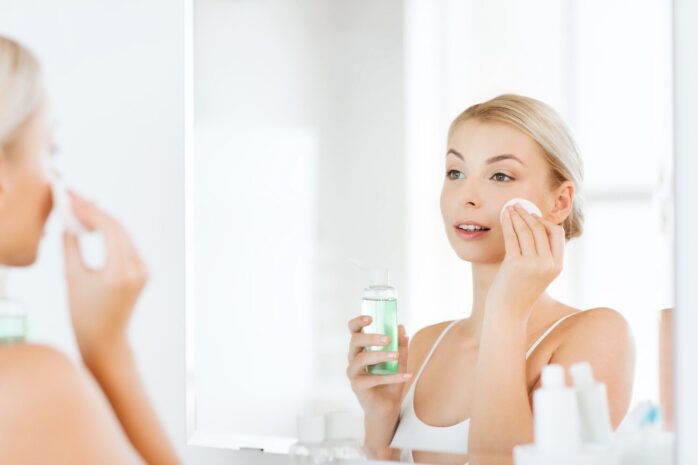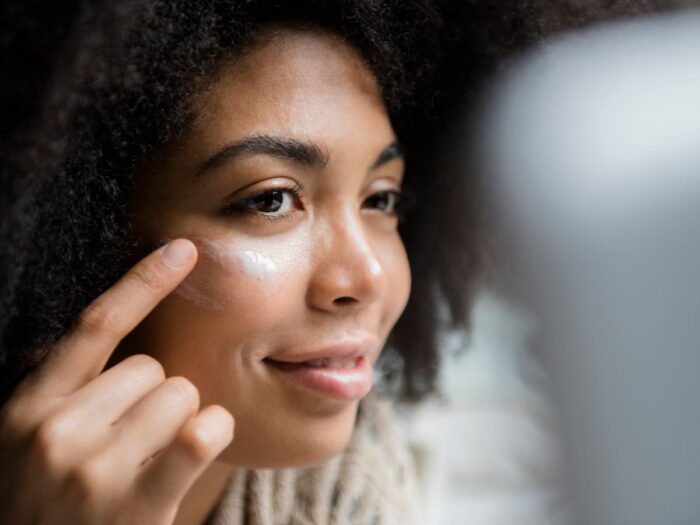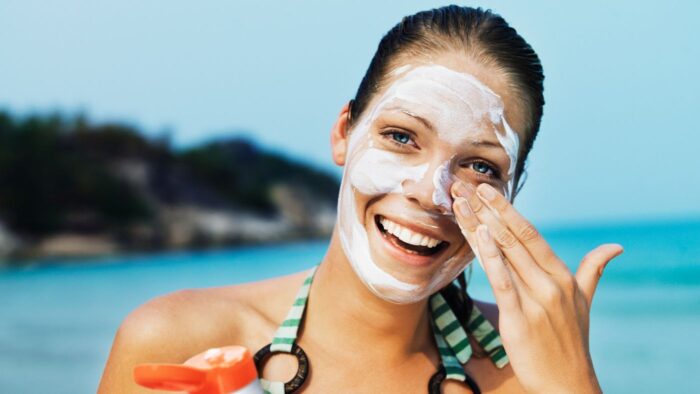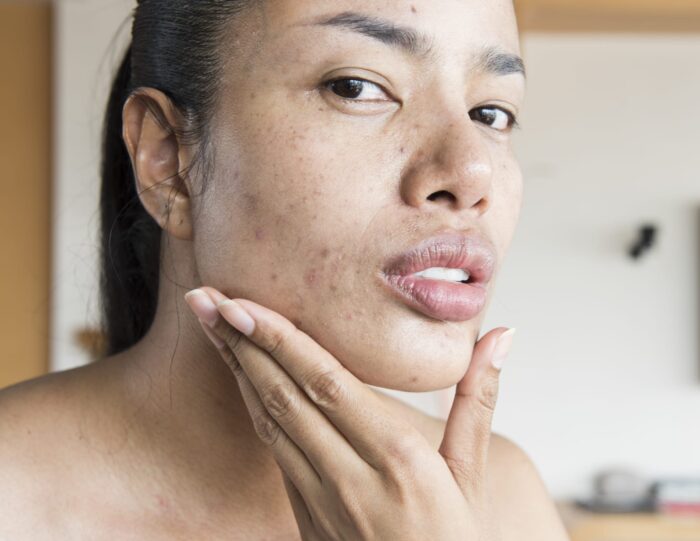
Are you concerned about caring for acne prone skin?
Acne doesn’t just affect your self-worth, it can also cause physical damage. The stress of dealing with your skin issues can be difficult to manage. But, an effective skincare routine can do wonders to help control your acne.
To best manage your acne and reduce stress, consider the tips below when caring for your skin. Think of this as your acne prevention guide.
1. Keep Your Face Clean

Keeping your face clean is essential for managing acne prone skin. Use a gentle cleanser formulated for acne.
Harsh cleansers can strip away natural oils. This can cause your skin to produce more oil and can worsen acne.
Wash your face twice a day, using lukewarm water and a soft cloth or your fingertips. Massage the cleanser onto your skin in circular motions. Pay attention to areas prone to breakouts.
Rinse and pat your face dry with a clean towel. Clean skin helps remove dirt, excess oil, and bacteria that can clog pores and contribute to acne.
2. Moisturize Regularly
There is a misconception that acne prone skin doesn’t need moisturizing. But, it’s crucial to hydrate your skin the right way. Look for a lightweight, oil-free moisturizer designed for acne prone skin.
Moisturizing helps maintain the skin’s natural moisture barrier. It prevents excessive oil production and keeps the skin balanced.
Opt for products containing ingredients like hyaluronic acid or glycerin. These keep moisture without clogging pores.
Apply moisturizer to clean the skin after cleansing. Then massage it in until absorbed. Regular moisturizing keeps your skin hydrated. It also minimizes dryness and flakiness and supports skin health.
3. Avoid Touching Your Face
Touching your face can transfer dirt, oil, and bacteria from your hands to your skin. This leads to breakouts and irritation.
Be mindful of this habit and try to avoid touching your face. If you need to touch your face, make sure to wash your hands with soap and water beforehand.
It’s especially important to avoid picking, squeezing, or popping pimples. It can introduce more bacteria, cause inflammation, and result in scarring. Keep your hands away from your face as much as possible to maintain the cleanliness of your skin.
4. Exfoliate Gently

Exfoliation is the process of removing dead skin cells from the surface of the skin. It helps unclog pores and prevent breakouts.
But, it’s important to be gentle when exfoliating acne prone skin. This is to avoid irritation and inflammation.
Choose a gentle exfoliating product. Find those with ingredients like salicylic acid or alpha-hydroxy acids (AHAs). These can help dissolve dead skin cells without being too harsh.
Limit exfoliation to once or twice a week to prevent over-exfoliation. This can strip away essential oils and disrupt the skin’s natural balance.
Massage the exfoliator onto damp skin using circular motions. Then rinse off thoroughly with lukewarm water.
5. Use Non-Comedogenic Products
When selecting skincare products, look for the term “non-comedogenic” on the labels. Non-comedogenic products are formulated not to clog pores, reducing the likelihood of breakouts.
These products are lighter and less likely to contribute to acne formation. You can choose from cleansers and moisturizers to serums and sunscreens. Ensure that all the products you use are non-comedogenic.
Choose non-comedogenic options. This way, you can provide your skin with the necessary care. This is without exacerbating acne or causing pore blockages.
Pay attention to product labels. Focus on non-comedogenic formulations for a healthier complexion.
6. Be Cautious With Makeup
Makeup can be a useful tool for concealing acne. But it’s important to choose products that won’t aggravate your skin condition.
Look for oil-free and non-comedogenic cosmetics designed for acne prone skin. Heavy foundations or products with fragrances can clog pores and can trigger breakouts.
Instead, opt for lighter, water-based formulations that allow your skin to breathe. Before applying makeup, ensure your face is clean and moisturized.
Afterward, remember to remove your makeup before bed. This will allow your skin to regenerate and breathe overnight. By being selective with your makeup choices, you can cut the risk of worsening acne breakouts.
7. Protect Your Skin From the Sun

Exposure to the sun’s harmful UV rays can worsen acne. It can also lead to post-inflammatory hyperpigmentation.
Protect your skin from the sun. It is crucial for maintaining health and reducing the risk of acne flare-ups.
Choose a broad-spectrum sunscreen with an SPF of 30 or higher. Then apply a generous amount to all exposed areas. Look for oil-free or gel-based sunscreens to avoid pore clogging.
Remember to apply sunscreen again every two hours. This is especially when spending extended periods outdoors or after swimming or sweating.
By shielding your skin from the sun, you can prevent sun damage. You can also prevent the potential worsening of acne symptoms.
8. Avoid Squeezing or Popping Pimples
Resist the urge to squeeze or pop pimples, as it can lead to more inflammation, infection, and scarring. Squeezing or popping pimples can push bacteria deeper into the skin. This can cause further damage.
Instead, allow blemishes to heal on their own. If you’re concerned about a persistent pimple or need guidance on acne treatment, consult a dermatologist.
They can provide appropriate treatments to help you in finding the best acne treatment. These include topical creams, oral medications, or in-office procedures.
Avoid unnecessary manipulation of your skin. This way, you can cut the risk of scarring and support the healing process.
9. Maintain a Healthy Lifestyle
Maintain a balanced diet rich in fruits, vegetables, whole grains, and lean proteins. These foods provide essential vitamins, minerals, and antioxidants that promote skin health.
Stay hydrated by drinking an adequate amount of water each day. This is because hydration is crucial for maintaining skin elasticity and preventing dryness. Regular exercise helps improve blood circulation, which promotes a healthy complexion.
Additionally, manage stress through relaxation techniques like yoga or meditation. This is because stress can contribute to acne flare-ups. Adopting a healthy lifestyle supports the well-being of your skin.
Start Caring for Your Acne Prone Skin Today

Every day is an opportunity to show love and care for your acne prone skin. Use the tips we’ve discussed today to tailor a skincare routine that gives your skin the TLC it needs. With the right approach and the right products, caring for your acne prone skin will become easy.
Don’t forget to be patient and gentle – your skin will thank you for it! Get your glow on today!
Make sure to check out the rest of our blog for more tips on various topics.





